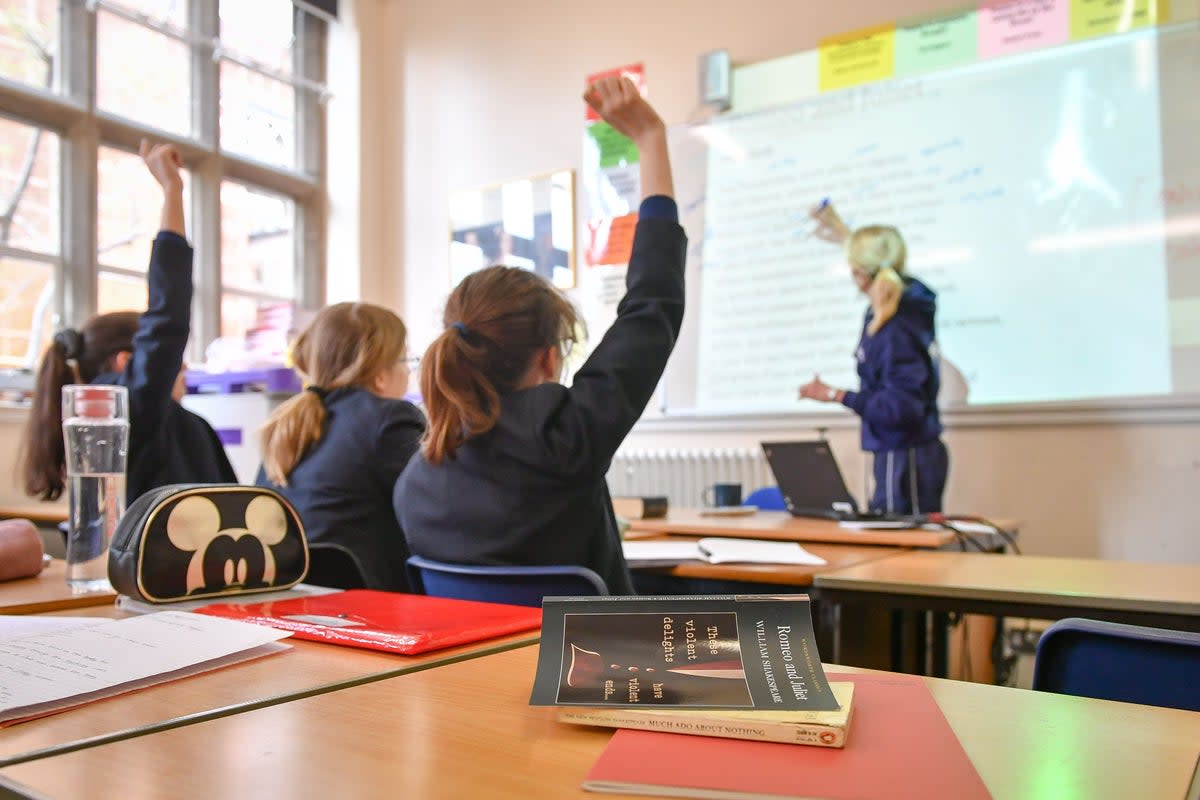OPINION - Putting VAT on school fees will deny families the fundamental right to choose their education

The current hot topic debate of adding VAT to school fees almost entirely revolves around monetary factors. Share the proceeds with state schools, we are told, and it will lead us to glorious times of the best education for all. Really?
I am still waiting to hear a politician articulate what, for me, is the point central to the best education: curriculum, school philosophy, and parental choice of the educational model they feel best suits their child’s needs.
Good education is always rooted in the cultural profiles, values, and aspirations of the family and community. A one model fits all approach doesn’t work and is the very opposite to the ideas of education and child’s development. As things stand, only the independent sector in this country allows you to design and run the curriculum and school your community needs.
The Bilingual Education Alliance (BEA) connects a group of schools implementing pioneering bilingual curricula in various languages — Italian, French, Russian, Spanish, Arabic, and Chinese, to name some. Most are small specialist schools with years of community effort behind them, some being small charities. They are run by passionate founding members, often facing serious fundraising challenges. Due to their innovative curricula, size, and admission requirements, most cannot operate within the existing regulatory framework imposed on the state sector and were effectively forced down the independent route.
Despite various challenges, such as with budgets or premises, these schools contribute significantly to education in the area of bilingual education, languages, English as an Additional Language (EAL), teaching methodology, cultural integration, and international relations.
They strive to maintain low fees, provide bursaries, open doors to refugees and run outreach programmes. Supported by academics and educationalists, they provide the educational model which many families drawn to them for cultural and community reasons need. There are currently around 40,000 children attending these academically rigorous, pedagogically innovative, culturally rich and happy schools.
Such schools bring enormous benefit to British society, and with no financial support from government.
And this might come as a shock to many people. In many countries, including developing ones, private non-government schools are partially or even fully supported by the government. Reports like “Education at a Glance 2023” from the OECD and OIDEL, an NGO specialising in the right to and freedom of education, provide comprehensive information and statistics on this subject.
Here the state imposes never-ending rules and regulations on all schools without giving anything in return
School and parental choice is a global debate linked to the right to education and the parental right to choose the educational model for their children.
Models of state support for non-governmental schools differ from school vouchers, tuition tax credits, scholarships, funding teachers’ salaries or direct per-pupil payments. The fundamental idea is pluralism in education and parental choice, reflecting the diversity of families and society.
Some might argue this happens in the UK with faith schools or free schools. However, most of these schools barely differ from the state model, driven by rigid conditions and statutory requirements in exchange for government funding. As one head said, some are more “state” than state schools themselves.
The central point in the school choice debate focuses on the balance between state and individual/community freedom. Internationally, government-dependent private schools normally negotiate their freedom to ensure societal cohesion and understanding, often in the form of statutory basics on the curriculum and national values taught in all schools. Independent schools in Britain are no exception.
Crucially, however, they can implement variations on the state model to ensure educational pluralism. The difference between England and many other countries is that here the state imposes never-ending rules and regulations on all schools without giving anything in return. The model does little to support diversity in education and the innovations required for the benefit of families, communities and country.
Without government support, the right to choose the education and school you think best suits your child becomes a privilege. Does this remind you of the country we live in?
With VAT to be introduced on fees by what is likely to be an incoming Labour government, many independent schools and families who choose to send their children to them will not be able to continue because they will be unaffordable. This will lead to school closures and the loss of unique educational models.
This will deny families and their children their fundamental right to choose the education and school they require for their children – some with no alternative in the state sector. These are schools that have enriched the lives of many children over many years with innovative work, often against the financial odds and certainly without any state support.
Our BEA VAT letter signed by the member schools and academics was ignored by the Shadow Secretary for Education.
Is there a future for school, community, and parents’ choice of education in this country?
If this goes ahead, the future looks grim, and I wonder if there will be a future for school, community and parental choice in education in this country – certainly one that is accessible and affordable. Or are we are rapidly heading towards a society where educational pluralism dies on the hill of state-imposed conformity, with a few exceptions for the super-rich? I almost convinced that education is the last thing that many politicians and bureaucrats care for despite their fine words.
Maria Gavrilova is a founding member of the Bilingual Education Alliance and Head of a British Independent school


